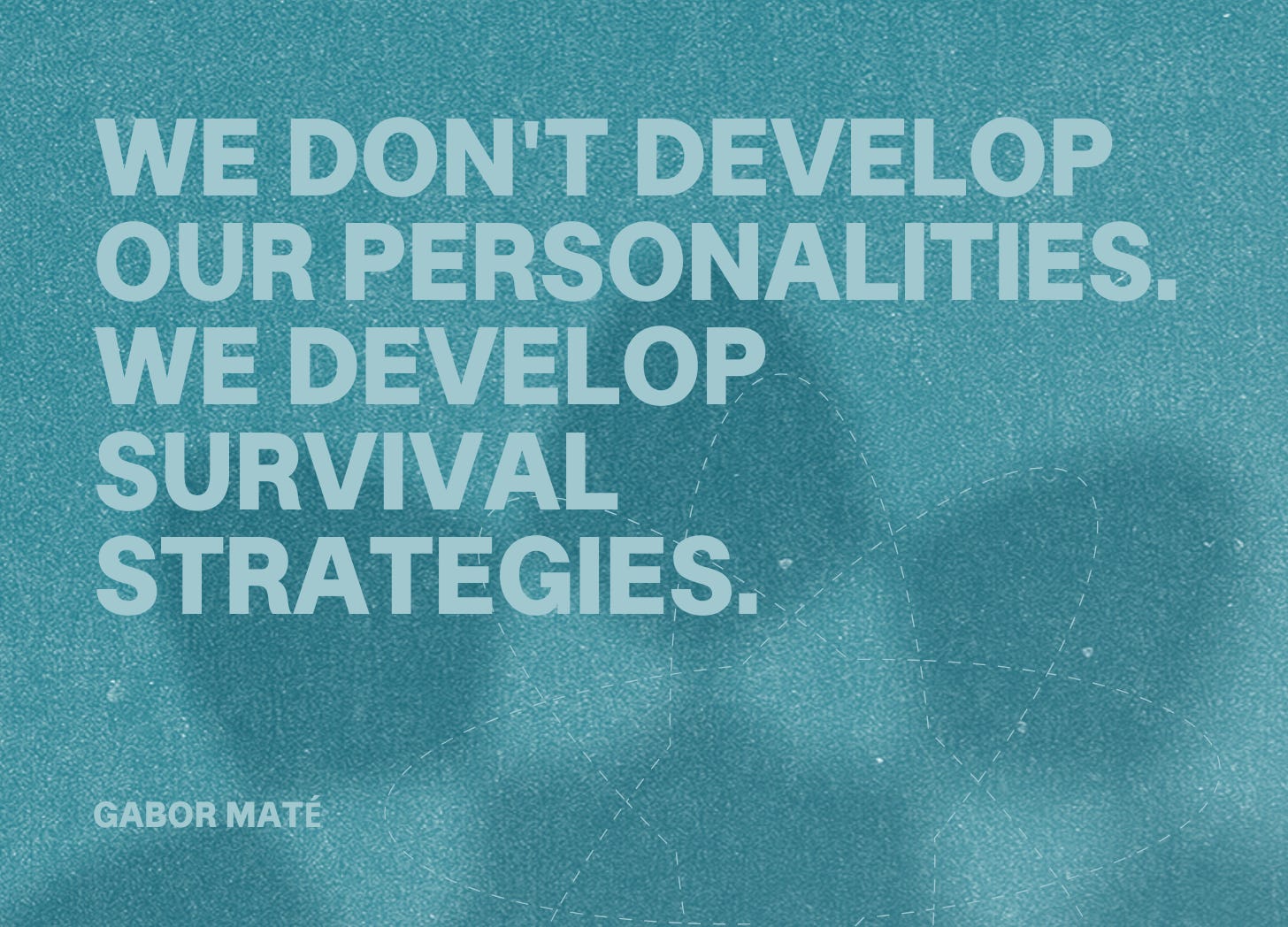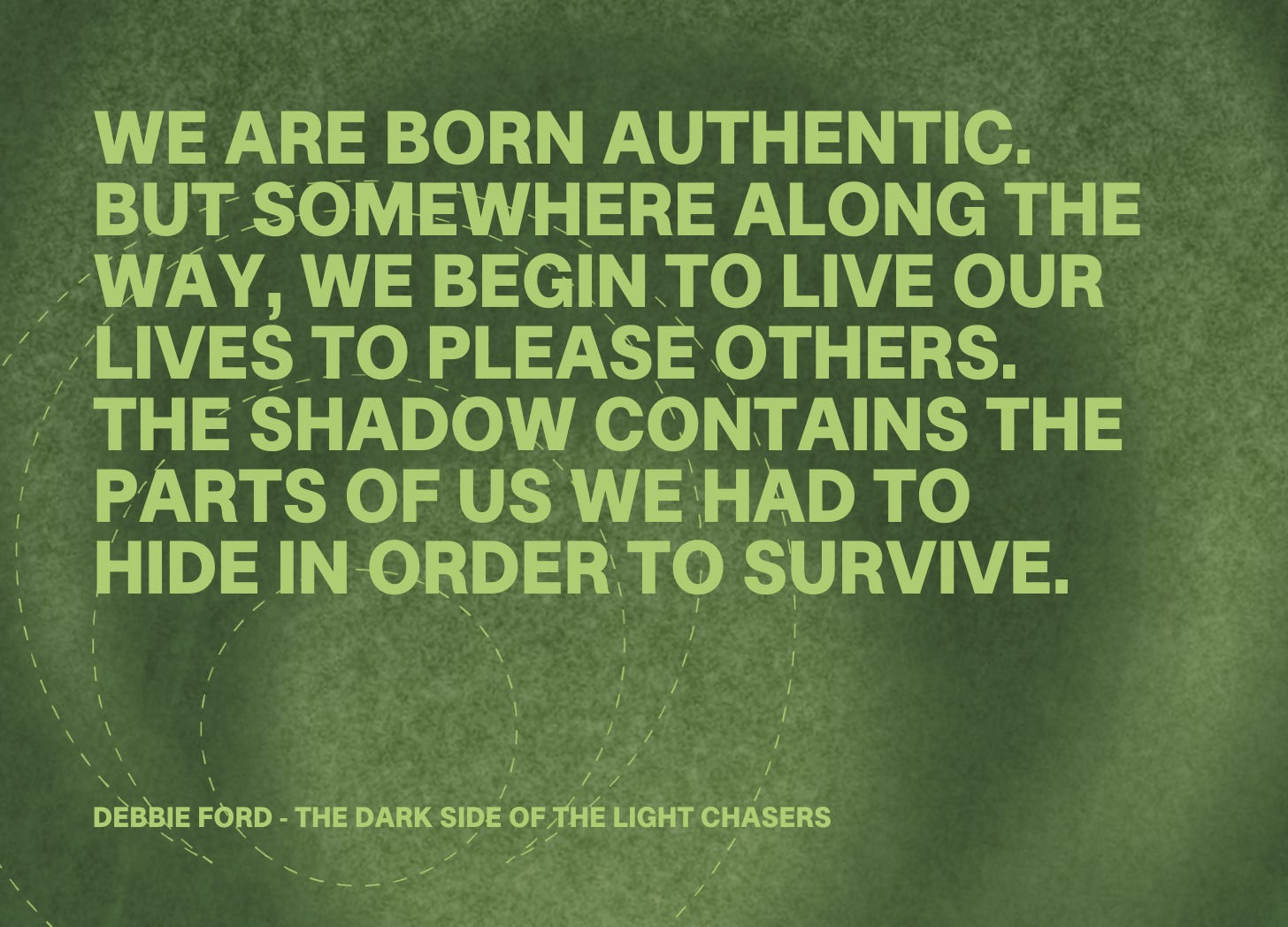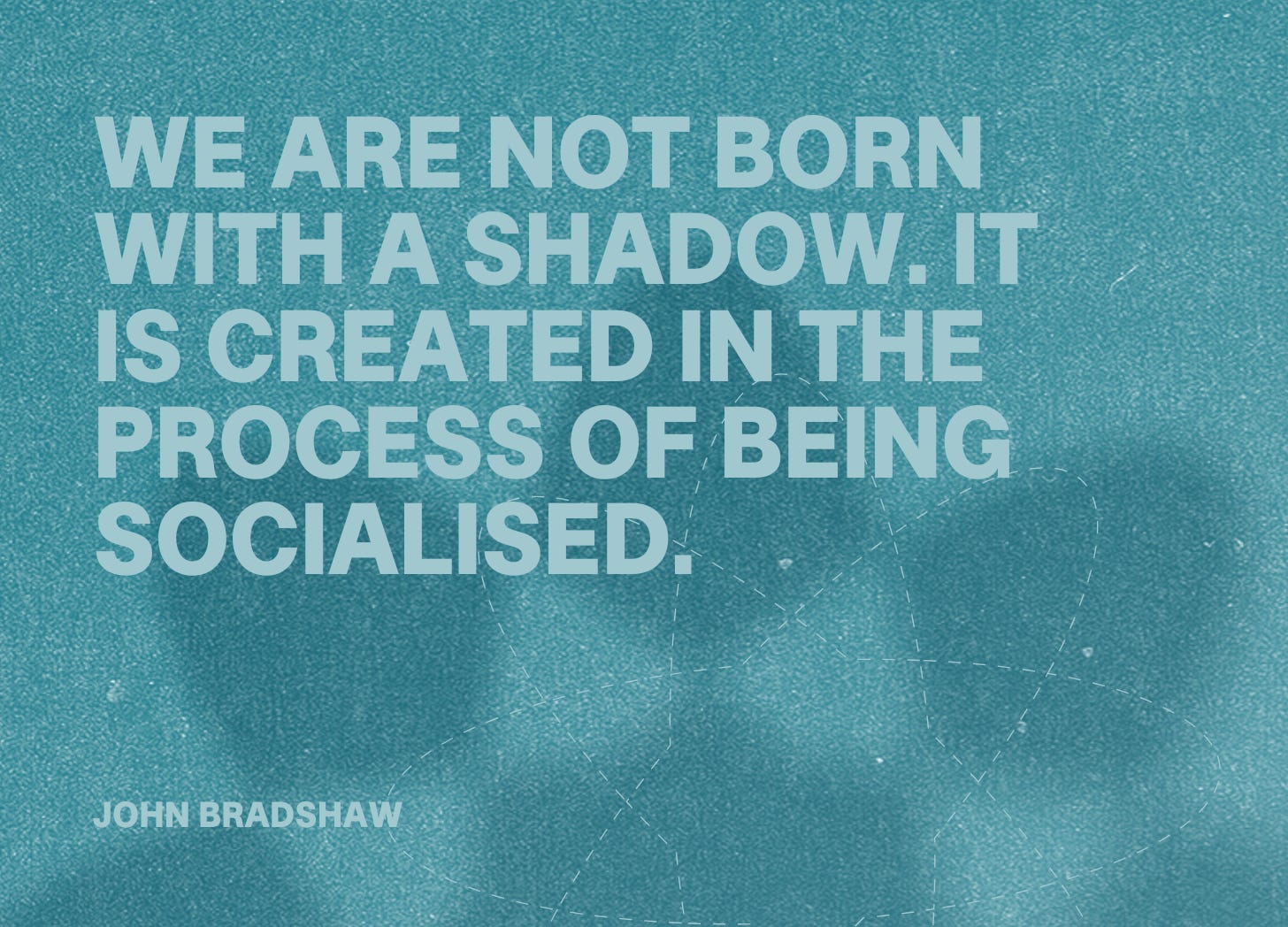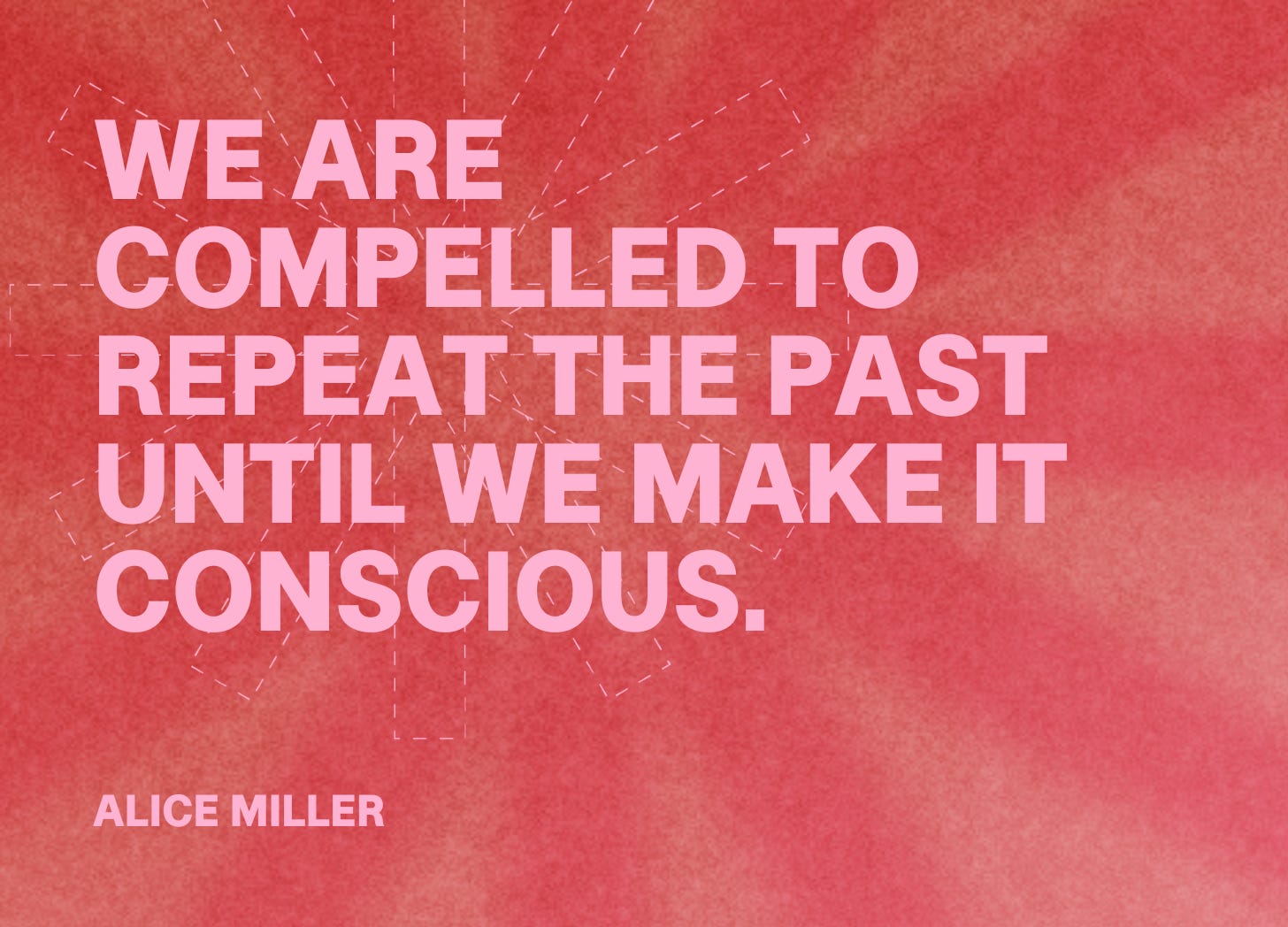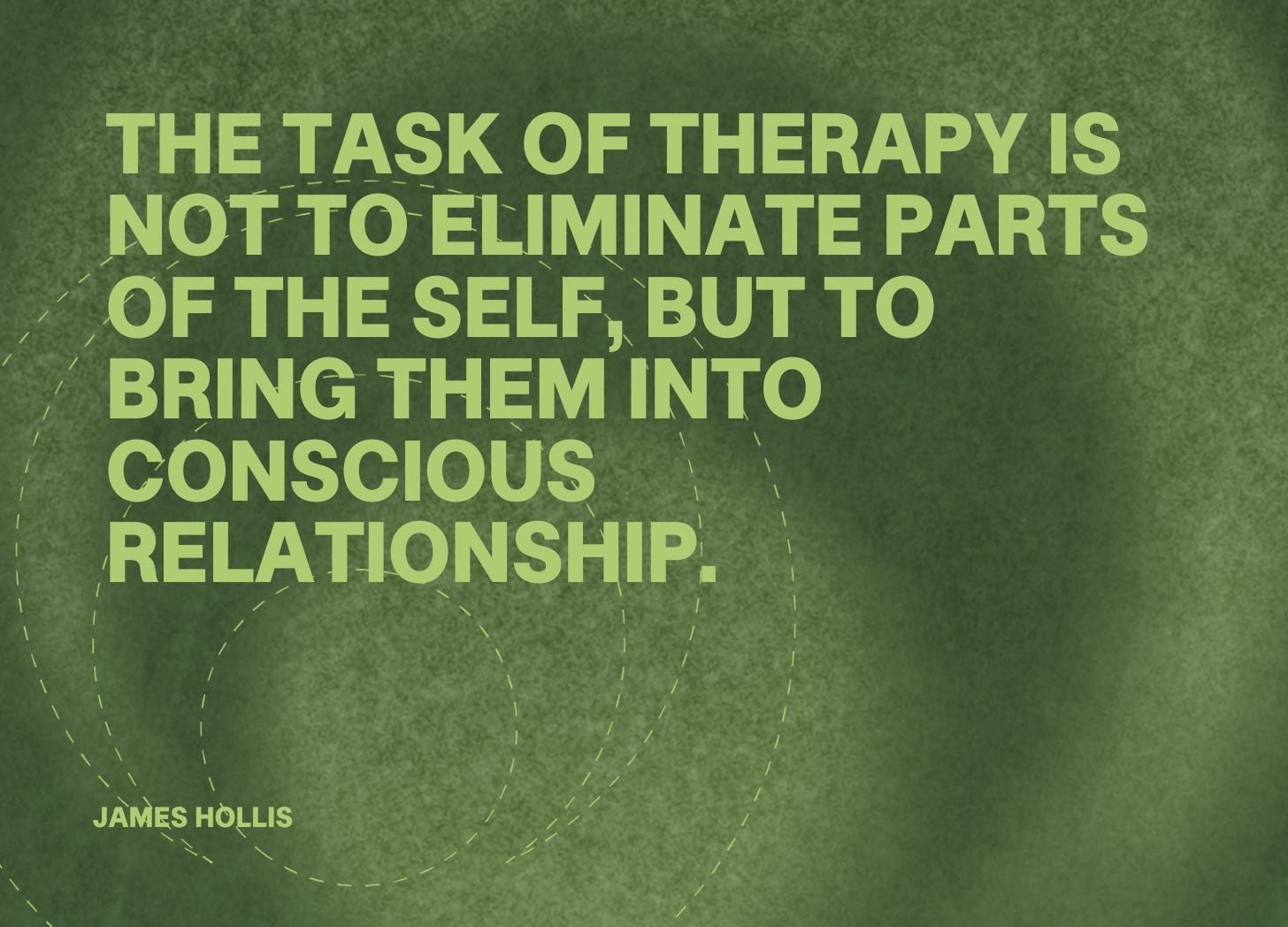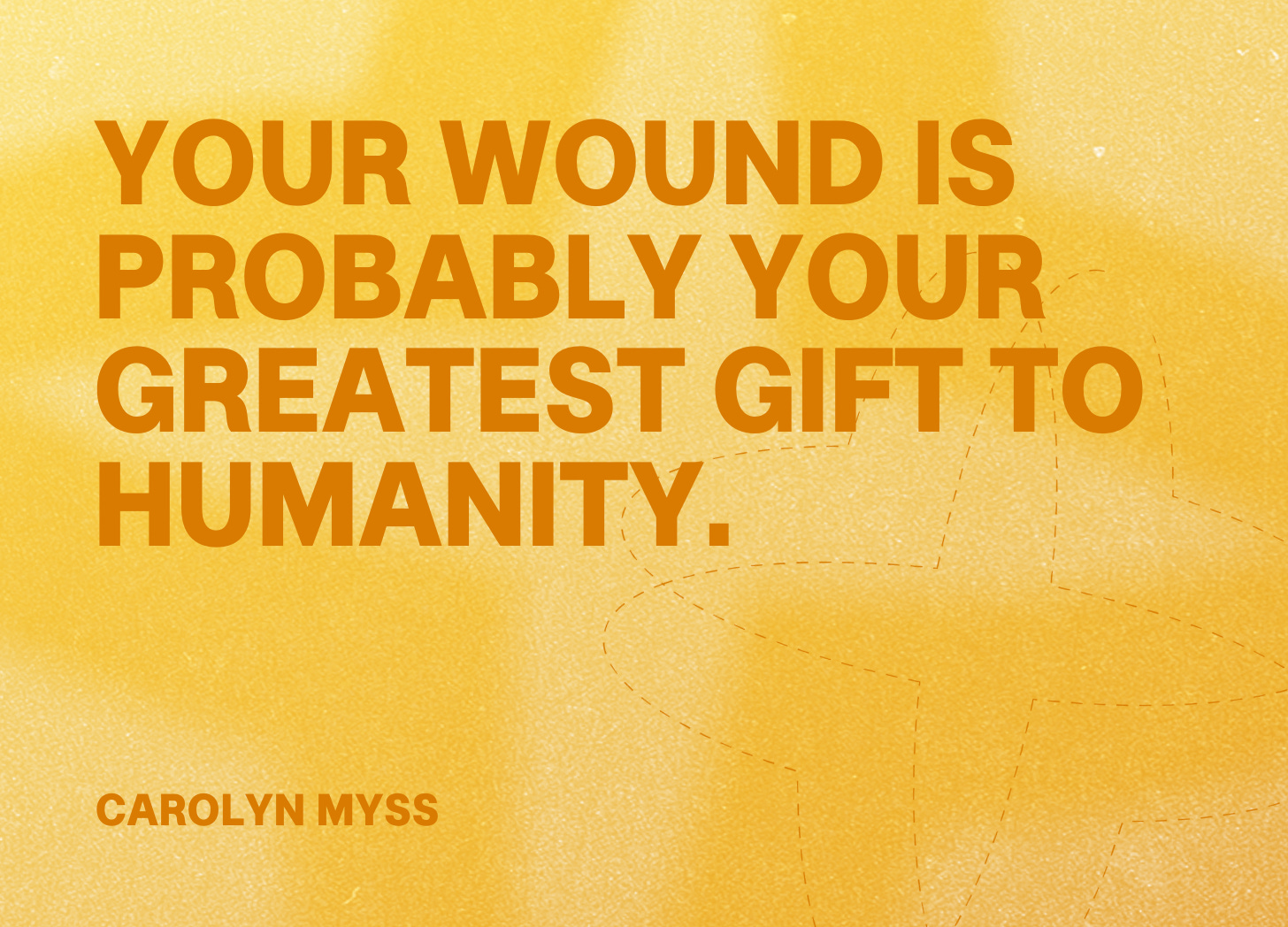How your shadow formed
Introduction to Shadow Work - Part 3
Thanks for being here. This is the third lesson in your free Introduction to Shadow Work course. If you have landed here without reading the previous lessons, I recommend you start from the beginning. Subscribe below, and I’ll send you links to all the lessons in the course.
In Lesson 2, we discussed how your shadow shows up in your reactions to other people. Today, we're going back to the beginning to understand how your shadow formed.
The focus in Shadow Work, and in this course, is on bringing acceptance to all the parts of ourselves.
It’s important to remember that you make perfect sense.
Every pattern you have, every way you protect yourself, every part of yourself you've hidden, makes perfect sense when you understand how it began.
Let me tell you about three children:
Emma, age 7: Her father works long hours, and her mother is overwhelmed with three kids. When Emma cries or expresses big emotions, she gets told, "Don't be so dramatic" or "Stop being such a baby." She learns quickly that her feelings are too much, too inconvenient. So she starts swallowing them. By age 10, Emma had become the "easy child" who never complained and made a fuss. At 34, Emma still struggles to know what she feels or needs because she learned so early that her emotions weren't welcome.
Jake, age 5: His parents are going through a messy divorce. There's yelling, crying, and chaos. Jake learns that when he's funny and makes people laugh, the tension in the room dissolves. He becomes the family entertainer, the one who lightens the mood. It works - he gets positive attention and the fighting stops. Now, at 28, Jake can't stop performing. He exhausts himself to keep everyone happy and has no idea who he is when he's not "on."
Zara, age 9: She's naturally confident and outspoken, but her family keeps telling her she's "too much" - too loud, too opinionated, too bold. "Girls should be seen and not heard," her grandmother says. "Nobody likes a show-off," her mother adds. So Zara learns to dim herself down, to take up less space, to have fewer opinions. At 31, she struggles to speak up for herself and constantly apologises for existing.
Emma wasn't born afraid of her emotions. Jake wasn't born needing to entertain everyone. Zara wasn't born believing she was too much.
They learned these things. They adapted. They survived.
And so did you.
How the shadow forms
As children, we're completely dependent on our caregivers for our physical and emotional. We need love, attention, safety, and belonging as much as we need food and water.
So we become expert readers of our environment. We figure out what gets us love and what gets us rejected. We learn what's safe to express and what needs to be hidden.
Your shadow is formed through:
Direct Messages: "Stop crying." "Don't be so sensitive." "Good girls don't get angry." "Boys don't show weakness." "You're too much." "You're not enough."
Conditional Love: Being rewarded for being "good" (quiet, helpful, achieving) and punished or ignored for being real (messy, needy, authentic).
Modelling: Watching how emotions, needs, and parts of humanity were handled in your family. If dad never showed vulnerability, you learned vulnerability wasn't safe. If mom was always self-sacrificing, you learned your needs didn't matter.
Trauma and Overwhelming Experiences: Sometimes parts of us get buried not through direct messaging, but through experiences that were too much for our young nervous systems to handle.
Cultural and Social Conditioning: Messages about how people like you (your gender, race, class, neurodivergence) are supposed to behave.
The great split
Faced with these pressures, your psyche did something brilliant and heartbreaking: it split you in two.
On one side: the parts that were acceptable, rewarded, and safe to express. These became your "persona" - the mask you wear in the world.
On the other side: the parts that were dangerous, unwelcome, or threatening to your belonging. These got buried in your shadow.
This split wasn't your fault. It wasn't a character flaw. It was an intelligent adaptation to impossible circumstances.
You couldn't change your environment, so you changed yourself.
The price of splitting
But here's what happens when we bury parts of ourselves: they don't disappear. They go underground and start running our lives from there.
The little girl who learned her emotions were too much grows up unable to feel or express her needs. The little boy who learned to be an entertainer grows up exhausted from performing. The little girl who learned she was too much grows up making herself invisible.
The survival strategies that kept you safe as a child often become the very things that limit you as an adult:
The hypervigilance that protected you from unpredictable parents now makes it hard to relax
The people-pleasing that earned you love now leaves you exhausted and resentful
The emotional shutdown that kept you safe now makes intimacy impossible
The perfectionism that made you the "good child" now makes you terrified of failure
Why understanding this matters
When you understand how your shadow formed, something profound happens: you stop judging yourself and start having compassion.
You weren't broken. You weren't defective. You weren't too sensitive or too much or not enough.
You were a child doing whatever it took to survive and be loved.
Every defense mechanism you developed, every part of yourself you buried, every strategy you used - it all made perfect sense given what you were dealing with.
The part of you that learned to hide your anger? It was protecting you from punishment or abandonment.
The part of you that learned to be perfect? It was trying to earn love and avoid rejection.
The part of you that learned to take care of everyone else? It was trying to maintain peace and connection.
These parts of you are wounded protectors working overtime to keep you safe.
The journey home
In Shadow work, we are not trying to rid ourselves of these protector parts, no matter how dysfunctional they are playing out.
Our goal is to embrace and reeducate them, letting them know that you're not a child anymore, that you have more options now, that some of the old strategies aren't needed anymore.
What you’ll experience is that the very qualities you were taught to hide might actually be your greatest gifts:
Your sensitivity might be intuition
Your anger might be healthy boundaries
Your neediness might be your capacity for connection
Your "too muchness" might be your aliveness and power
Your gentle exploration for this week
This week, I want you to get curious about your own origin story. But please - go gently. Blame or analysis won’t help you here. We are aiming for understanding and compassion. And this can sometimes be challenging work.
Reflect on these questions (journal, phone notes, or just pondering):
What parts of you were welcomed and celebrated in your family?
What parts of you were discouraged, punished, or ignored?
What did you learn about emotions like anger, sadness, fear, joy?
What messages did you receive about your needs, your voice, your worth?
How did you learn to get love and attention?
What strategies did you develop to stay safe?
As you explore this, notice where you feel sensations in your body. Maybe your chest tightens when you think about certain memories, your stomach knots up, or you feel sadness or anger arising.
Treat this as useful information, not a problem to be solved.
Your body is showing you where these old patterns live. Just breathe with whatever comes up. You don't need to fix or change anything. You're just getting to know the landscape of your inner world.
You were never too much. You just needed more safety, understanding, and room to be human.
A note on safety
As you do this exploration, you might remember difficult or traumatic experiences. This is normal, but it's important to go slowly.
If you find yourself feeling overwhelmed, please:
Stop the exploration and do something grounding (feet on the floor, deep breaths, cold water on the face)
Remind yourself that you're safe now
Reach out for professional support if needed
Approach this work with gentle awareness and understanding.
In the next lesson, we will discuss something that might surprise you: the golden shadow. The parts of yourself you've buried aren't just wounds and defence mechanisms. They're also gifts, power, and aliveness.
We'll explore how reclaiming your shadow is about coming into your fullness as a human being.
You're exactly where you need to be in this process.
Stay gentle with yourself.
P.S. If this email brought up big feelings or memories, please know that's normal. You're shining light into places that may have been protected for a long time. Honour whatever comes up. Seek support if you need it. There's no rush in this work - it unfolds in its own perfect timing.
Remember: This isn't therapy by email. If you're dealing with significant trauma, please consider working with a qualified therapist who can provide appropriate support and containment for this deep work.


